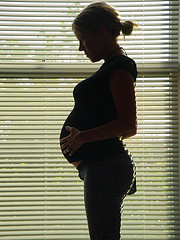How to Prevent Pregnancy
 According to The World Health Organization’s information on pregnancy, approximately 87 million pregnancies worldwide are unplanned each year with a terribly sad number of up to 46 million ending in induced abortion. You might feel that completely abstaining from sexual intercourse is the only way to make 100% sure that you do not fall pregnant, but that might be harder said than done especially if you are in a loving and committed relationship. While abstaining from sex is obviously the best way to completely avoid any pregnancy “accidents”, there are many ways to prevent pregnancy that can be up to 99,99% effective, meaning you can enjoy lovemaking with your partner with a less than 1% chance of falling pregnant.
According to The World Health Organization’s information on pregnancy, approximately 87 million pregnancies worldwide are unplanned each year with a terribly sad number of up to 46 million ending in induced abortion. You might feel that completely abstaining from sexual intercourse is the only way to make 100% sure that you do not fall pregnant, but that might be harder said than done especially if you are in a loving and committed relationship. While abstaining from sex is obviously the best way to completely avoid any pregnancy “accidents”, there are many ways to prevent pregnancy that can be up to 99,99% effective, meaning you can enjoy lovemaking with your partner with a less than 1% chance of falling pregnant.
The following tips on how to prevent pregnancy will give you all the information that you will need to avoid falling pregnant:
Condoms are one of the most well known contraceptives and are popular due to the cost as they are usually only a dollar a piece at your local drugstore. In our high school health class, condoms are the first bit of information on pregnancy prevention we tend to hear. This is one of the only contraceptive methods that protects against both STDs and pregnancy when used constantly and correctly. Condoms are about 98% effective and work by preventing semen fom coming into contact with fertile eggs as they are worn over the penis. Condoms also prevent the spread of STDs; however the thin latex that condoms are made from can tear easily and also might cause allergic reactions with some individuals.
When used correctly, the cervical cap reduces the chance of falling pregnant to only 4%; making this a great method on how to prevent pregnancy you can trust. This safe and convenient contraceptive method is a soft rubber cap that fits around your cervix and is inserted through the vagina. Spermicide is usually added to the rim of the cap to increase the effectiveness. The spermicide works by killing the sperm and the cap works by blocking the entrance to the uterus. It should be left in place for at least six hours after your last intercourse.
The daily contraceptive pill is another way you can prevent pregnancy by taking it orally at the same time every day. Information on pregnancy prevention by using the pill is available at any local drugstore. With consistent use, your chance of falling pregnant is less than 1%, however certain antibiotics can decrease the effectiveness of it so make sure to let your doctor know you are on the pill if you are prescribed antibiotics. The pill contains a combination of estrogen and progestogen that inhibit female fertility and makes it a great method for how to prevent pregnancy, but it offers no protection against HIV or STDs.
Pregnancy prevention injections are another alternative. The shot is given every 3 months and contains the hormone progestogen to protect against pregnancy. You have a less than 1% chance of falling pregnant with this method and it protects you for up to 3 months. While it is a convenient method on how to prevent pregnancy, the shot does not protect against HIV or STDs.
You may pay between $500 and $1000 for an Intrauterine Device (IUD), but it is extremely effective and lasts up to 12 years and is inserted into your uterus by your healthcare provider. One works by releasing hormones that inhibit fertility, whereas another type made from copper affects the movement of sperm and stops them from fertilizing the egg.
Whilst there are a few more internal methods of protecting against pregnancy, these are some of the most well-known ways of how to prevent pregnancy. A more drastic method to protect against pregnancy is for a woman to be sterilized or for a man to have a vasectomy. Information on pregnancy prevention by sterilization or vasectomy is available at your local hospital or physician’s office.
Sterilization is not to be taken lightly as it is difficult or even impossible to reverse and involves surgery to close off the fallopian tubes in a process called tubal ligation, which prevents the possibility of pregnancy.
A vasectomy is a process that a man may undergo that blocks their vasa deferentia through which sperm flow, and prevents it from mixing with semen. So when the man ejaculates, his semen contains no sperm and pregnancy is avoided.
Also called Plan B or the morning after pill, this is a last resort contraceptive pill that should be taken after unprotected sex and the sooner it is taken the more effective it is. It consists of two pills containing levonorgestrel.
At the end of the day no matter how much information on pregnancy you read and how many people give you information on how to prevent pregnancy, it comes down to a personal choice of which method of contraception you prefer. Always consult a professional if you experience any adverse effects when using contraceptives.
***Picture thanks to Ohmega1982***

